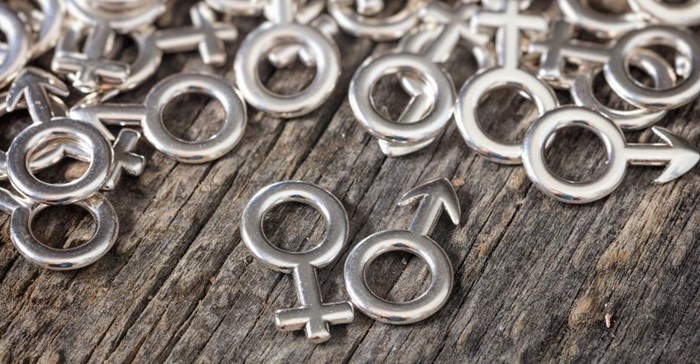Covid-19 shows gender bias: men more likely to need critical care
The study was a global-scale collaboration between scientists from the University of Cape Town (UCT) and University College London (UCL).
Before the national lockdown was announced in South Africa in March, Dr Charles Raine from UCL reached out to Dr Kate Webb, a paediatric rheumatologist in UCT's Department of Paediatrics and Child Health, for her opinion on something he had noticed: that men seemed to be suffering more from Covid-19. Was it anecdotal that men got worse when infected with Covid-19 or was it true? And if so, what was causing it?
Together they rallied colleagues who research gender and the immune system in autoimmune diseases. The scientists gathered Covid-19 reports from global hotspots to try and answer these and other related questions.
"Through an amazingly fast online collaboration, I have never worked like this before and it was truly remarkable to see this process unfold in such record time. The team sieved through thousands of reports looking for data about infections, admissions to intensive care units and deaths. A lot of countries were not reporting sex in the early data," says Webb, who was selected for the prestigious Crick African Network's African Career Accelerator awards last year.
To prevent duplication, it was a rigorous process of checking and cross-checking reams of data collected from 46 different countries and 44 states in the United States from the beginning of January until the end of June 2020. The team simultaneously summarised known sex differences in the immune system to make the information easily accessible to other scientists.
Discoveries
"We discovered that among over three million cases of Covid-19, there seemed to be equal proportions of men and women infected. This meant that men and women had an equal chance of being infected. Of those infected though, we saw that men had almost three times the odds (2.84) of needing admission to intensive care. Disturbingly, men also had 40% higher odds of dying from Covid-19 than women," says Webb.
There are various reasons that could account for the gender difference the team reported on. Figuring these out means answering questions like: Are men more likely to have comorbidities, such as diabetes or hypertension? Were the men that got infected older than the women?
These hypotheses remain untested and will require further study as the researchers weren't able to answer these questions based on the data they had amassed.
"Based on population statistics however, we don't think that there is sufficient difference between the numbers of men and women with comorbid disease to fully explain the stark differences seen in the severity of Covid-19," says Webb. "We know that men, in general, have poorer immune responses to many different infections. Women on the other hand generally have a stronger immune response to infections. But women are more likely to develop autoimmunity, where the immune system is 'overactive' and starts to fight against our own bodies."
She says that women exhibit a better response to the early stages of viral infections than men. One of the many reasons is because they produce more interferon - a potent anti-viral protein. Women also have more antibodies and have higher counts of T cells, which are critical to the immune system's function.
"After we had finished looking at these global data, I noticed that South Africa was following the same male trend in death and ICU admission, but we consistently had more women than men infected. I think it would be interesting to find out why we are so different to other countries in future work," she says.
The fight against a pandemic
For Webb and the team this work is their way of using their expertise to contribute to the fight against the pandemic. Understanding the way that COVID-19 behaves moves scientists closer to finding a solution. The findings could help contribute to vaccine development or to better predict who is at risk of severe disease.
"I don't want men to feel vulnerable because of this data. The findings should empower researchers to ask why we see these differences, and how we can exploit this information in the fight against Covid-19. This emphasises how sex differences in disease may highlight important pathways that we could potentially target."
Gender should thus be considered an important biological factor when designing therapies and vaccination strategies for Covid-19.
























